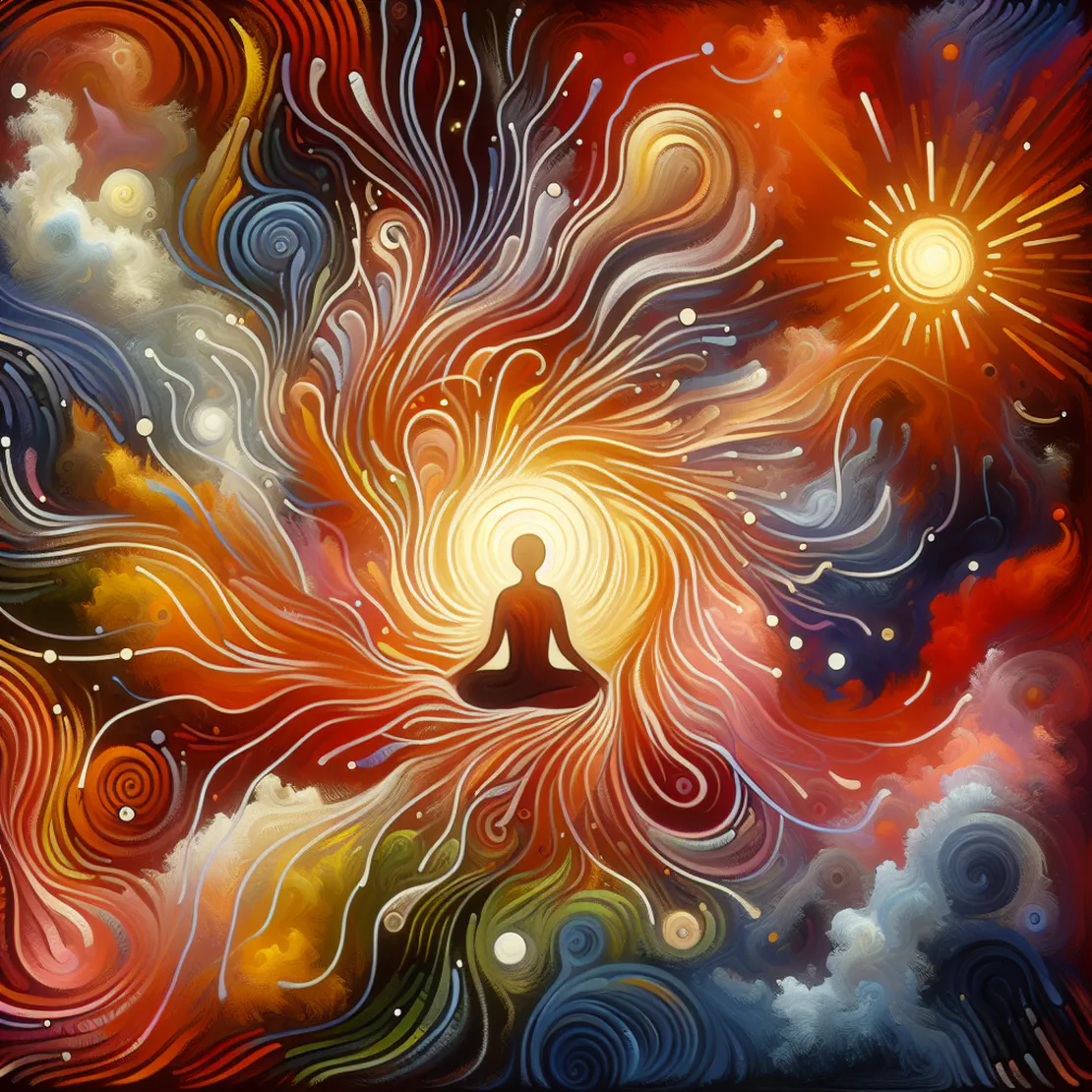
224 Questioning Sam Harris
- The Jordan B. Peterson Podcast
- Existence , Values , Civilization , Meditation , Most popular
- February 8, 2022
Table of Contents
At a Glance
Here’s a ‘highlight reel’ of the episode:
-
The need for individual development - “Well, that’s why we’re focusing on development of the individual.Because it is increasingly possible for individuals to do that.” This highlights the importance of personal growth in today’s world.
-
Relying too heavily on meditation and psychedelics - “I’m not suggesting that meditation or even the deepest insights you can have through meditation or psychedelics is sufficient for everything, for us to get everything we want out of life.” A serious point about the limitations of alternative methods in solving global problems.
-
The need for balance between individual experience and collective knowledge - “And maybe we feed the collective agreement with the sacred experience. But then if we lose that collective tradition, it’s very difficult to rebuild that from first principles.” A crucial discussion about finding a balance between personal growth and societal structure.
-
Mediation isn’t a solution for all problems - “Meditation and, you know, psilocybin and any, you know, and, and a full speed collision with the, with the beauty and profundity of the present moment isn’t the answer to many of those questions. It’s just, it is the answer to…Yeah, it’s a way else spring.” A humorous take on the limitations of meditation in addressing complex issues.
-
The importance of structure and tradition - “You know as we’ve just witnessed in you know getting through you know now now we’re into our second year of a global pandemic right. I mean we have a lot to figure out how do we how do we even make sense with one another in the presence of social media?” A serious point about the need for established institutions and knowledge in navigating complex global issues.
-
The value of conversation and face-to-face interaction - “I love talking to you and I’m very happy to see your face and this. It’s really good to see you again.” A heartwarming moment that highlights the importance of human connection in today’s digital age.
What to Do
-
Start with existential first principles - This approach can help us derive our sacred values and a sense of purpose in life.
-
Seed ordinary moments with mindfulness and meditation - This practice equips us to be loving, unconflicted, and relaxed in the present moment, making it easier to navigate life’s challenges.
-
Balance individual development with collective agreement and tradition - While personal growth is essential, we also need to consider the importance of collective values, knowledge, and institutions in building a viable global civilization.
-
Don’t rely solely on meditation or psychedelics for answers - These practices can be valuable for personal growth, but they are not enough to solve complex problems like building a sustainable future or navigating social media and institutional breakdowns.
What to Get
-
Waking Up: A Guide to Spirituality Without Religion by Sam Harris - Amazon
-
The Moral Landscape: How Science Can Determine Human Values by Sam Harris - Amazon
-
Meditation - Used as a way to refresh the mind and equip oneself to be loving, unconflicted, and relaxed in the present moment.
-
Psychedelics (specifically Psilocybin) - Mentioned alongside meditation as a means to enhance one’s capacity for love and understanding, but not as an answer to all questions.
- Tradition - Discussed in the context of how they’re necessary for building and maintaining complex societies, such as global civilizations.
Summary
The podcast episode features a thought-provoking conversation between two individuals on the intersection of spirituality and societal development. The discussion centers around the importance of individual growth and self-awareness in creating a more viable global civilization.
One of the key points made during the conversation is that it’s becoming increasingly possible for individuals to focus on their own personal development, which raises questions about the role of traditional institutions and collective agreements in shaping our values and social structures. The speaker suggests that by cultivating inner wisdom through practices like meditation or psychedelics, we can tap into a deeper sense of purpose and values that can inform our decisions at a societal level.
However, the conversation also acknowledges that this approach is not a panacea for all the challenges facing humanity. The speaker notes that there are many complex issues that require collective action, such as navigating social media, rebuilding trust when institutions fail, and responding to global crises like pandemics. While personal growth can provide a foundation for empathy and understanding, it’s just one part of the equation.
Another interesting point made during the conversation is the idea that we need to strike a balance between individual freedom and collective responsibility. The speaker suggests that by integrating our personal values with collective agreements, we can create a more harmonious society that balances individual rights with the needs of the community.
Throughout the episode, the tone remains friendly and conversational, reflecting the warmth and mutual respect between the two individuals. The discussion meanders through topics like spirituality, technology, and societal development, leaving listeners with much to think about.
Key Takeaways
- The importance of individual growth and self-awareness in shaping our values and social structures.
- The need for a balance between personal freedom and collective responsibility in creating a more viable global civilization.
- The limitations of relying solely on practices like meditation or psychedelics in solving complex societal problems.
- The value of integrating personal values with collective agreements to create a more harmonious society.
Why it Matters
This conversation highlights the need for a nuanced approach to addressing humanity’s challenges. By acknowledging both the importance of individual growth and the limitations of relying solely on that, we can begin to explore more comprehensive solutions that balance personal freedom with collective responsibility. As we navigate an increasingly complex world, this discussion offers valuable insights into how we can cultivate inner wisdom while also engaging with the social structures and institutions that shape our lives.


